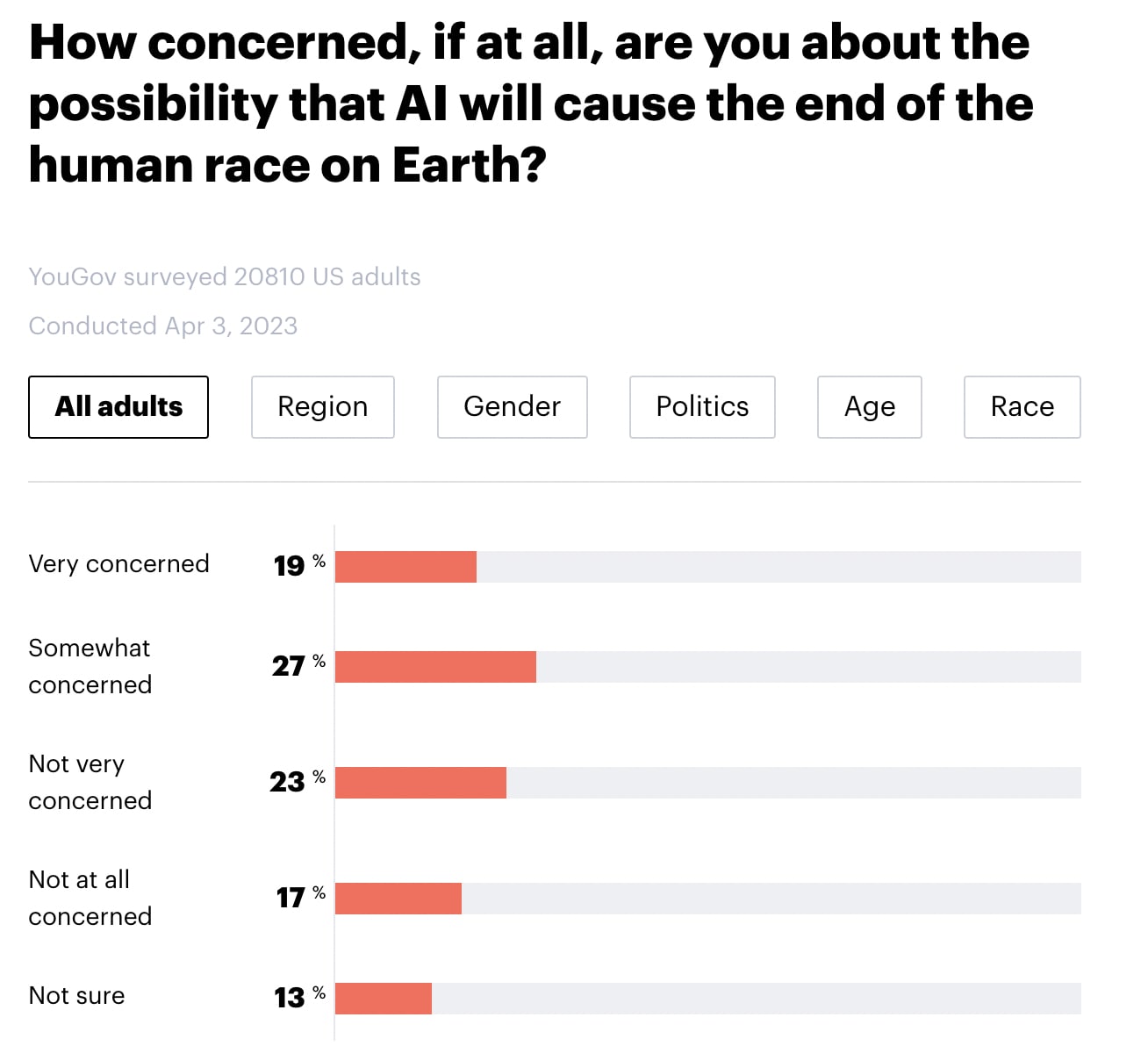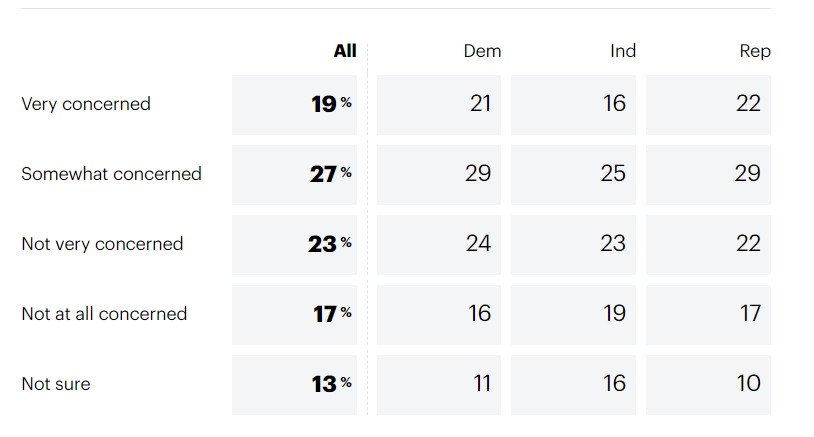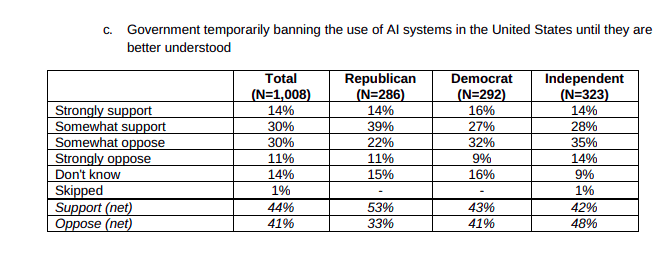YouGov America released a survey of 20,810 American adults. Highlights below. Note that I didn't run any statistical tests, so any claims of group differences are just "eyeballed."
- 46% say that they are "very concerned" or "somewhat concerned" about the possibility that AI will cause the end of the human race on Earth (with 23% "not very concerned, 17% not concerned at all, and 13% not sure).
- There do not seem to be meaningful differences by region, gender, or political party.
- Younger people seem more concerned than older people.
- Black individuals appear to be somewhat more concerned than people who identified as White, Hispanic, or Other.

Furthermore, 69% of Americans appear to support a six-month pause in "some kinds of AI development". Note that there doesn't seem to be a clear effect of age or race for this question. (Particularly if you lump "strongly support" and "somewhat support" into the same bucket). Note also that the question mentions that 1000 tech leaders signed an open letter calling for a pause and cites their concern over "profound risks to society and humanity", which may have influenced participants' responses.
In my quick skim, I haven't been able to find details about the survey's methodology (see here for info about YouGov's general methodology) or the credibility of YouGov (EDIT: Several people I trust have told me that YouGov is credible, well-respected, and widely quoted for US polls).
See also:



There is often quite a large gap between what these kinds of surveys seem to imply and actual voter behaviour. We see this in climate change all the time. Consider the recent survey that reported that over half of young people think humanity is doomed (with regards to climate change) https://www.bbc.com/news/world-58549373.
Yet we are not seeing a huge surge in support for european green parties.
I'm not sure what's going on with these surveys, but it's an interesting comparison.
This is not necessarily contradictory since European green parties do not always improve on the climate situation. E.g., they tend to be very opposed to nuclear energy even though it might be quite helpful to combat climate change.